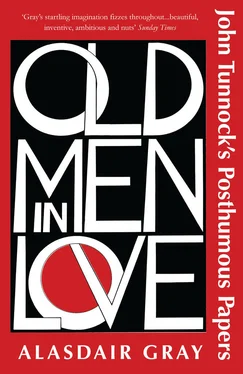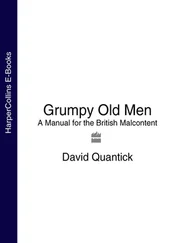“I prefer the Pythagorean Brotherhood’s idea,” says the comedian, grinning. “They say numbers make the shape and sound of everything from the globe of the earth to the strings of the harp, twing twang twong.”
“How do such things influence our conduct?”
“They don’t. Only gods do that.”
“Not much! Eros, Mars and Dionysus can certainly drive us mad, but they let us act how we want if we respect their shrines and titles like our neighbours do. So if even gods do not teach us to be better men they are as small a part of earthly wisdom — as little earthly use as scientific theories of the universe.”
“Priests and poets need gods and experts need theories.”
“Yes, as a source of income, but the wisdom of the state — the wisdom that keeps us alive and comfortable — is in the skill of labourers and craftsmen, the abilities of weavers, smiths, sailors, merchants…”
“You need my skills most!” says the farmer. He has placed a loaf like a small boulder on the rock, has hacked it with his sword into three equal parts and is moistening them with the last of the Ionian’s wine. The mason nods to him, says, “True. And what unites all people in a healthy state is honesty and mutual trust, things taught by our mothers when we are tiny children, not by priests and experts.”
“Perhaps,” says the comedian, smiling, “ though my mother taught me it was right to cheat customers if they never found out. But why sell the stoneyard if there’s more wisdom, more virtue in being an honest tradesman?”
“I don’t know,” says the mason frowning and picking up his share of the breakfast.
“And how will you live?”
“I don’t know.”
“Well,” says the comedian with a sudden air of great gaiety, “since Pericles introduced payment for parliamentary attendance and jury service it isn’t hard for an unemployed Athenian to scrounge a living.”
The mason twists his mouth as though tasting sourness but again nods agreement.


Nations and single people are only happy when feeling as good as their neighbours or even better. Five centuries before Jesus was born Israel was proud of having the one true God, Egypt of having the oldest history and buildings, Phoenicia the greatest merchant navy, Persia the biggest empire. Though lacking all these things Greece — especially Athenian Greece — had the first people proud of being most modern. Greek historians agreed that everything Grecian except the poetry of Homer and Hesiod had been shared with, or learned from, surrounding nations a century or two earlier, but the Greek states had so improved this borrowed knowledge that their governments, laws, town planning, art, medicine, philosophy, athletic games and ships that these were now the best anywhere. But like all other people, tribal or civilized, nomads or settled, ancient or modern, they knew funeral services make the dead less liable to haunt the living. Battles between Greek states were followed by a truce to let each side retrieve their dead and give them decent funerals.
The bodies of those killed in early warfare between the Athenian and Spartan leagues had been returned to their families for private mourning. The Athenian remains would now be publicly entombed in a cemetery beside the cliff of the Acropolis. Each electoral district had brought the bones of its dead in a single big coffin, and these now lay in a row beside an empty coffin representing bodies that had not been recovered. All would be placed in the mausoleum designed by Phidias, sculptor and master of public works, but first a speech must be made. In Athens no priest had more authority than a minister of state. Pericles, the state’s chief minister, normally avoided public speaking because many Athenians resented conspicuous men so much that they sometimes voted to banish them for that reason only, but today Pericles had to speak because his political programme was in danger. Anti-war speeches were increasingly heard in the marketplace, in parliament and in the comedies of Aristophanes. If he did not speak now, whoever did would be thought a mouthpiece he was hiding behind, or a politician bidding to replace him.
From the shadow of the mausoleum he saw what seemed all Athens assemble. Like every large Greek gathering outside parliament (which only men attended) it was dividing sexually. On one side were men not abroad on military service, and since many were abroad the wives, daughters and mothers on the other side were a larger crowd. Women could not vote — were supposed to be powerless — but Pericles did not doubt their influence and knew that among them anti-war feelings were strongest. For a moment he envied the leaders of Sparta where mothers were proud of sons who died fighting for their country, ashamed of those defeated in battle. He was relieved to notice the male side being increased by an influx of resident aliens — shipwrights, builders and experts who had found work in Athens since the United National Greek defence fund had been brought there from Delphi. The aliens, like women, could not vote but they certainly supported his war policy. His speech would have to respect every shade of opinion present without verging a fraction from that policy. He sighed, climbed upon a rostrum overlooking the crowd and coffins, then stood patiently until those who saw him fell silent. When silence was complete his firm, even voice reached everyone in his audience without seeming to shout.
“I will start by begging all the gods for help. May potent Zeus, fertile Ceres, earth-shaking Poseidon — may harmonious Apollo, lovely Aphrodite, swift Hermes, chaste Selena — may the wise virgin Athena who names our city and The Kindly Ones who guard it in their cavern under the Acropolis — let all these unite to stop me saying anything false or unsuitable.
“The death of these men we are mourning has deprived this year of its Spring. They have become like the gods — great beings we will never see again, but must never forget while holding them in the greatest honour and respect. But I cannot praise them without also praising the city that bred them. This Athens they died defending is unique.
“We call ourselves a democracy because we are not ruled by a king, or by the rich, or by a political clique elected every year or two. We rule ourselves, all the free men of Athens meeting daily or weekly to discuss and vote upon the business of the state. We make our own laws, gladly obeying the will of the majority. When a leader must be elected to do a special piece of business, what counts is not wealth but ability — nobody with great abilities is denied power because he is poor. And our private lives are as free and open as our politics! If our neighbour wants to enjoy himself in a way that is not our own we do not sneer or throw him black looks — we are tolerant, and friendly. Our homes and public buildings are comfortable and beautiful, but that has not made us soft. Our Empire brings us goods from all over the world, but that has not made us extravagant. In civilized living Athens is recognized as the teacher of the world. Our Spartan enemies are taught to fight from infancy. They do without all the good things of life, in order not to be afraid of death. Yet we, who enjoy every reasonable pleasure, fight just as well as they! We know that happiness depends on freedom, and freedom depends on courage. Which is why these men died. Their death has not made them greater men than you here who fought and still live. But let their bones remind us that this war must not end before we win it.
Читать дальше














